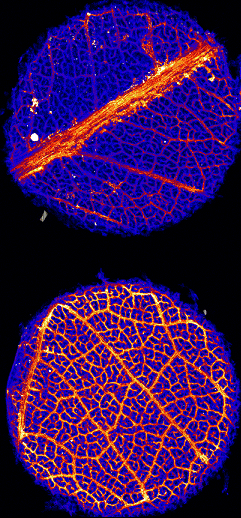Trees strike gold in WA mining bloom
 Even the trees are grabbing their slice of Western Australia’s underground resources, with CSIRO showing nature may have levied its own minerals tax.
Even the trees are grabbing their slice of Western Australia’s underground resources, with CSIRO showing nature may have levied its own minerals tax.
Australian scientists have discovered that Eucalyptus trees in the Kalgoorlie region of WA are drawing up gold particles from the earth and wearing it on their leaves.
“The eucalypt acts as a hydraulic pump – its roots extend tens of metres into the ground and draw up water containing the gold. As the gold is likely to be toxic to the plant, it’s moved to the leaves and branches where it can be released or shed to the ground,” CSIRO geochemist Dr Mel Lintern said.
Prospectors will not be clicking their heels in excitement at the finding, with the leafy nuggets measuring around a fifth of the diameter of a human hair. However, it is possible that the blinged-out gum trees could indicate where gold deposits lie, metres beneath their bark.
“The leaves could be used in combination with other tools as a more cost effective and environmentally friendly exploration technique,” Dr Lintern said.
“By sampling and analysing vegetation for traces of minerals, we may get an idea of what’s happening below the surface without the need to drill. It’s a more targeted way of searching for minerals that reduces costs and impact on the environment.”
“Eucalyptus trees are so common that this technique could be widely applied across Australia. It could also be used to find other metals such as zinc and copper.”
The CSIRO team called in the help of The Synchrotron - an advanced x-ray elemental imaging device. The Synchrotron produces clear images of minerals within the leaves that otherwise would have gone unnoticed.
The finding is another example of the ability of scientific research to have direct economic influence, in this case providing a new tool to the country’s largest and most profitable industries.
The full details of the study have been published in the journal Nature Communications.
CSIRO has also created a video to explain the finding further;








 Print
Print